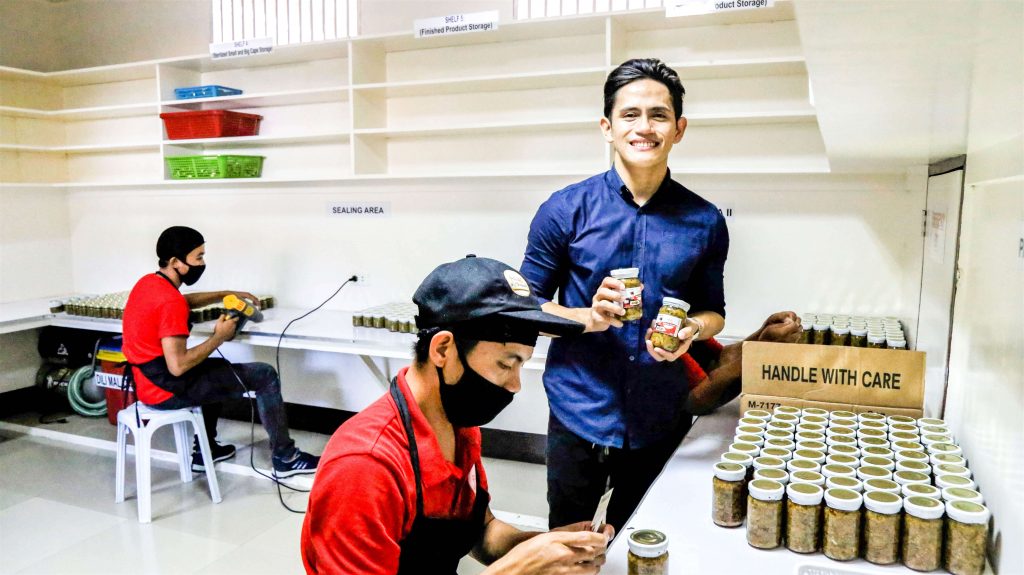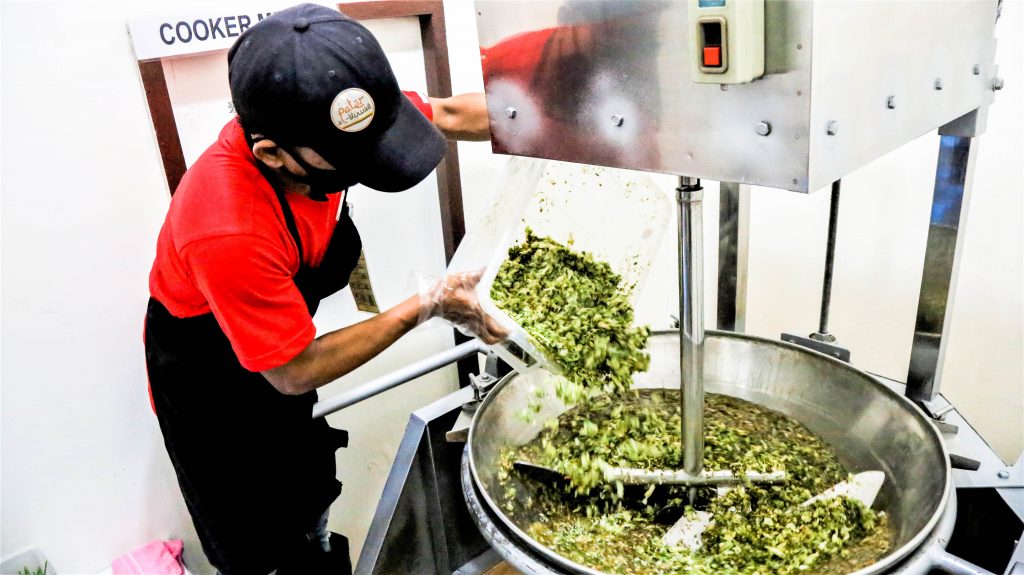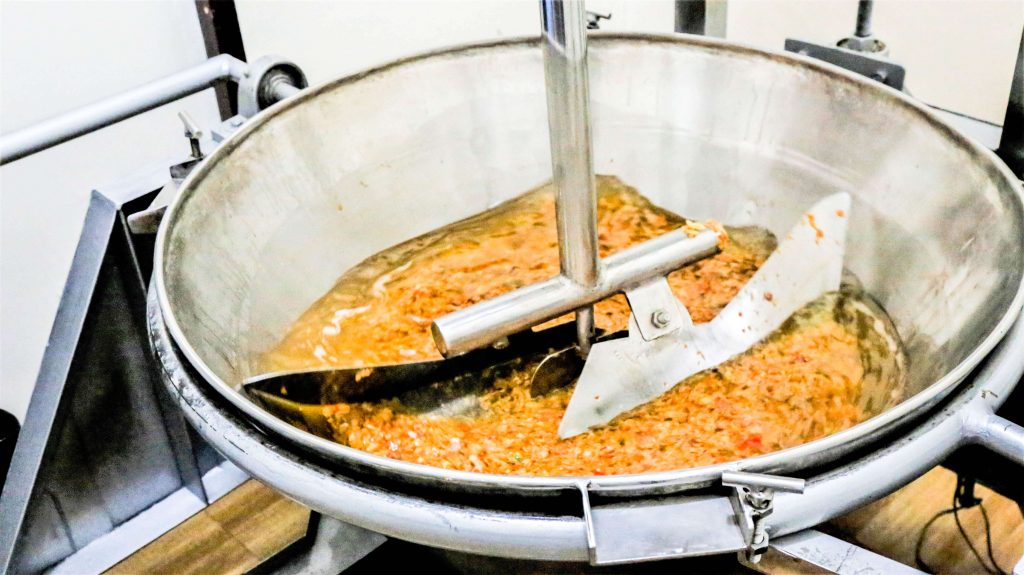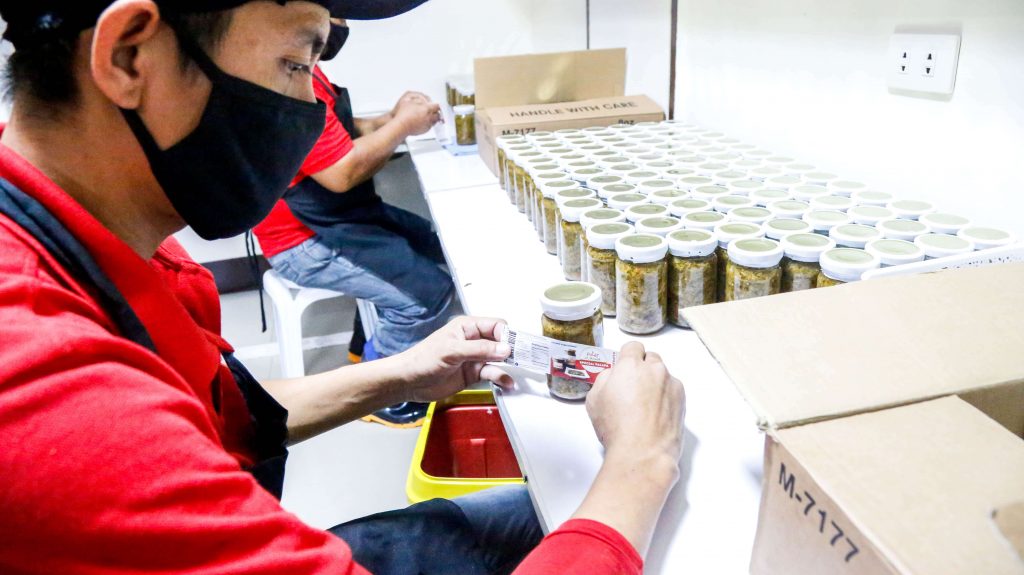Leveling up the spice of life
Rexaniel Saburnido, the man behind the bottled palapa in Iligan City, always wanted to set up a business, despite having limited capital and resources on hand. He took this as a challenge and decided to test the waters by putting up his own restaurant, which he called Pater Al-Kuwait.
Palapa is a sweet and spicy condiment made of thinly chopped sibujing (native shallots), chili peppers, and ginger. It is also used as a garnish that has a boatload of secret spices and has been an inseparable addition to cooked food by the locals. Such great relish can never remain hidden as it is, that is why Rexaniel of Lanao del Norte strives to make it known to the world.
In the provinces of Lanao, palapa serves as a staple of every meal, often served with rice and viand and could sometimes serve as an appetizer itself. This condiment, which makes each meal tastier, is usually found in many restaurants and eateries in the region.

Addressing the demand
Pater Al-Kuwait started with four staff, including Rexaniel himself who also served as the cashier. The restaurant serves pater, a Maranao staple food made of rice topping wrapped in banana leaves with palapa on the side.
The restaurant business was doing well, with side dish palapa as its main attraction.
“It was 2013 when I saw the potential of the business. The customers grew and most of them started asking if there’s palapa that they could take home,” he recalled.
He saw this as a perfect opportunity to venture into a new business. Capitalizing on the high demand for palapa, Rexeniel tried offering palapa as a take away for his customers who would often eat at the restaurant. He went out of his way to assess how he could succeed if he would opt to offer palapa among his customers.

Success in a bottle
While the idea to produce palapa seemed promising, there were also roadblocks that Rexeniel had to overcome.
The first challenge was learning the techniques to package palapa for a longer shelf life. His customers wanted to bring home bottles of palapa, but he could only offer disposable cups as containers for them, which could only last for a week.
This prompted Rexeniel to immediately look for possible solutions. He began to study food preservation processes using bottle jars which is ideal for this kind of product. After getting enough knowledge on this product, he then established Pater Al-Kuwait Manufacturing that produces palapa, which complements the meals they offer at his restaurant. But introducing the new product to the market required additional resources, and Rexeniel had to look for partners.
Rexaniel, an engineering graduate, admitted that he had limited knowledge on how to run a business. Rexaniel was driven by his grit to have a successful business, but he knew that technical and practical knowledge are crucial for this venture to be sustainable.
“It was really hard for me. I was an engineering graduate and had no idea about business. I thought it was easy but when it went big, I realized that I still have so much to learn. I had no system back then,” he said.
This was when the Department of Trade and Industry’s (DTI) Kapatid Mentor ME program came in the picture. Through trainings and seminars, Rexeniel learned the other aspects of business management, including logistics, basic accounting, process manuals, trademarks, and human resource management.
“After attending trainings, my sales increased by 300%,” shared Rexaniel, adding that “Everything is now systematic and DTI keeps on pushing us to manufacture products that are of export quality.”

Through the lessons and insights from workshops and seminars, he managed to meet and even exceed the expectations of his customers. He learned ways on how to market products, which greatly increased his sales. Aside from his regular Muslim customers, Rexeniel also managed to market bottled palapa to Christian buyers who were never used to eating palapa. Learnings from KMME also helped him handle his employees better.
In addition, he was able to promote his products through the trade fairs organized by DTI, particularly reaching a wider audience that included those who were not from Mindanao. Rexeniel shared that DTI has been very supportive and would often push them to constantly produce export-quality products, which continues to inspire him each day.
“We always make sure that we offer our buyers with high-quality products,” he said.
For Rexeniel, it is indeed the quality of their palapa that enabled him to expand in a short period of time and build a solid base of loyal customers. Today, he manages three branches of his restaurants, a pasalubong center, and a production facility with over 65 employees. Pater Al-Kuwait now has around 60 distributors in Lanao del Norte with plans of expanding beyond the province, this will allow the business reach more buyers and enable its people to earn more income.
Rexeniel knows that there is much to improve on, optimistic that things would fall into place. He expressed his excitement on the next steps to take, which include franchising, exporting, and developing new line of products.




